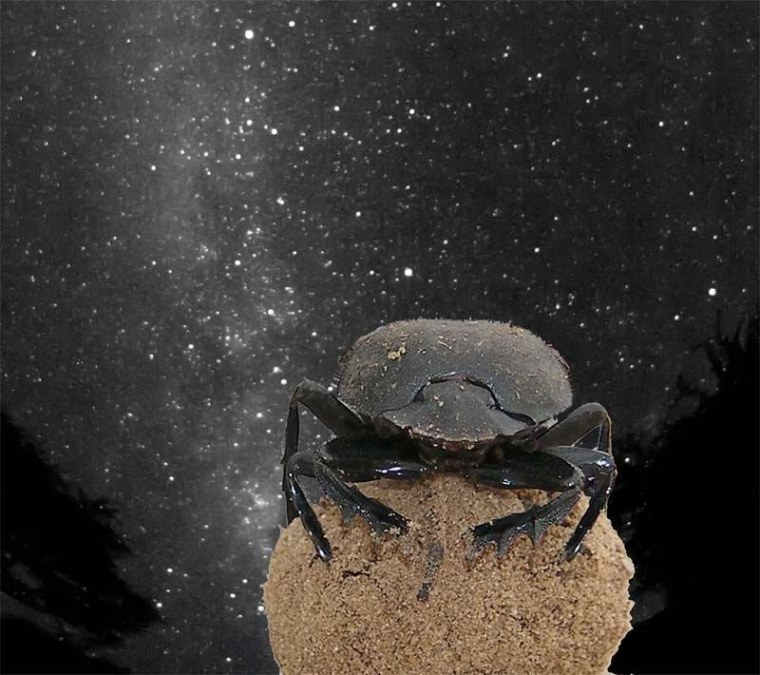I've heard of sailors navigating by the stars. I've heard of birds and turtles using the stars to find their way. But dung beetles? Who knew? Apparently, they are the latest in a long line of species who orient themselves by means of the heavens. Scientists already knew dung beetles had sensors in their eyes that could detect moonlight, but no one expected they could also see the stars.
Biologists in Sweden recently experimented with dung beetles under controlled conditions on moonlit nights, moonless nights, and cloudy nights. They constructed tiny hats for the beetles to block their view of the sky in some cases. [Note : you haven't lived till you've seen a dung beetle with a tiny hat.] Further tests inside a planetarium revealed that the beetles could navigate best when the Milky Way was visible, implying that they could also sense the light from the center of our galaxy. This matters because animals and insects that use celestial navigation are seeing fewer and fewer stars due to the light pollution from our cities, towns and highways. The critters will begin to die off if we're not careful, and it should go without saying that we don't want to find out what happens next.
All the geek that's fit to print:
- New Yorkers are no strangers to pigeons, but I bet most of them, myself included, never knew there was such variety in the pigeon genome.
- Wisdom the Albatross is the world's oldest wild bird, and she's still growing her family.
- Speaking of wisdom, these fish lack it completely as individuals, but they make up for it as a group.
- In prey versus predator, seal turns the table on sharks off the coast of South Africa.
- New largest prime number has been discovered and it's 17,425,170 digits long.
- Kickboxing frogs, just one of the many highlights of the Discovery Channel's new series on Africa in collaboration with the BBC. [VIDEO]
- Constellations aren't the only projections of human experience on the sky. Check out this collection of nebulas named after their earthly counterparts. [SLIDESHOW]
- Whimsical gallery of photographs of sea life with miniature figures for a change in perspective.
- Owls can rotate their heads 270 degrees without cutting off the blood supply to their brains. [VIDEO]
- Southern hemisphere dwellers: keep your eyes on the sky for Comet PANSTARRS. Northern hemispherites: you'll have to wait until March.
Stay geeky out there. @Summer_Ash
